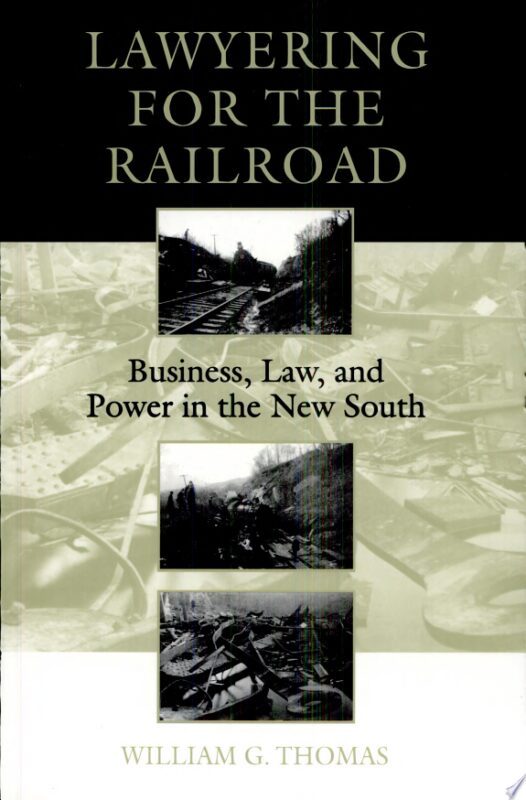Lawyering for the Railroad provides the first full account of railroad monopoly power, tracing its sources and effects in the southern political economy. Issues touching on railroad development were major components of politics in the days of both Populism and Progressivism, and railroad attorneys — often in their role as lobbyists — were always in the middle of the action. They distributed free passes to legislators, retained the best counsel for their clients, laid out the legal agreements to form monopolies, and instituted practices to ensure quick and favorable settlements for the railroads. In this intriguing work, William G. Thomas introduces the southern attorneys who represented railroads between 1880 and 1916, closely examining their role in the political economy of the South during the Gilded Age and the Progressive Era, a period in which the region experienced sharp change, explosive growth, and heated political contests. Thomas tells his fascinating story with legal department records from some of the largest interstate railroad companies in the South. With the help of these records, he demonstrates how the railroads tried to use the law and the legal process to mold the southern political economy to their ends and what kind of opposition they faced. Standing at the crossroads of business, law, and politics, Lawyering for the Railroad gives context, depth, and specificity to what have been cursory glimpses into the shady world of corporate power in the Gilded Age. From small-town lawyers to big-city firms, the story of the railroad attorneys brings into focus the many ways the interstate railroad transformed the South.
Lawyering for the Railroad
About the Book
Order Now
The books shown are NOT affiliate links. MSQ (site) does not receive any compensation for books sold. Books are shown for the reader's convenience only.




Recent Comments